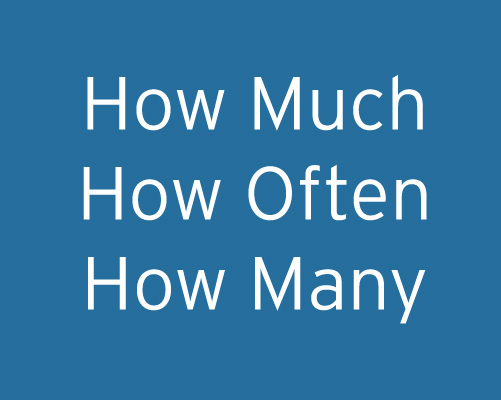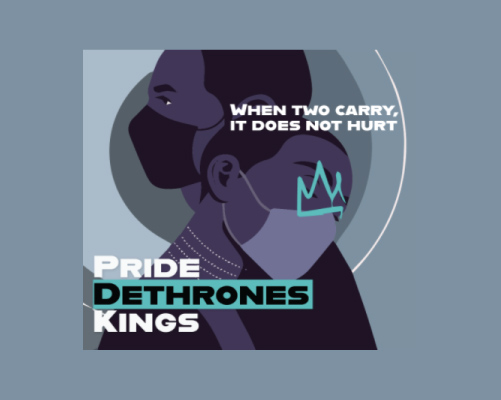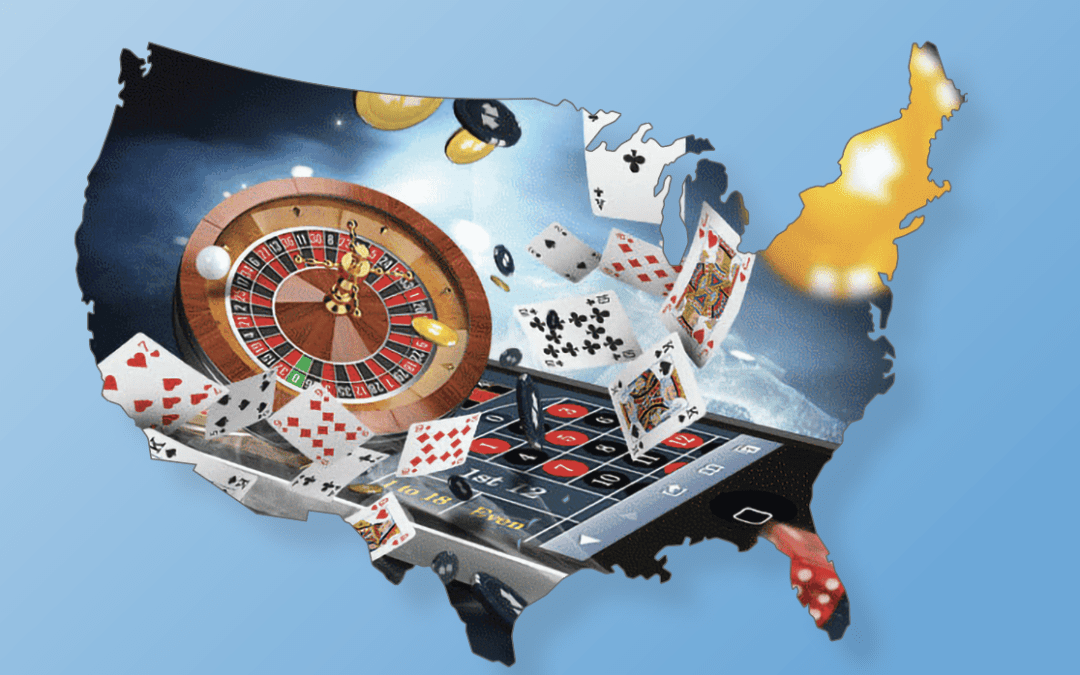
Mar 16, 2022 | HELP, PROBLEM GAMBLING, PROFESSIONALS, RECOVERY, RESOURCES
As seen on The Phoenix Spirit. Read the original article Here.
By Bill Stein
There is great power in learning from someone who has “been there before.” People with similar lived experience may be able to listen and provide hope and guidance in a way that is uniquely received.
So-called “mental health peer support” has existed for decades. Since the 1990s, the concept of “consumers as providers” has become a larger component in mental health service settings.
Perhaps there is no more powerful example of the power of peer support than when a recovering compulsive gambler shares their story with someone still in the throes of addiction. Indeed, programs such as Gamblers Anonymous are built largely on the idea that others with similar challenges can lead the way to recovery.
Peer support specialists are people who have been successful in the recovery process and can help others experiencing similar situations. Peer support specialists have a proven place as a key component of integrated care for recovery.
What is a Peer Support Specialist?
A peer support specialist is someone with lived experience who is able to share that perspective with another person who has not yet achieved recovery from addiction. They provide a link between clinical services and “outside” supports and can help someone navigate the behavioral health system and find appropriate community resources. A peer provides an example of empowerment and success and can be a trusted role model. It’s often easier for a person seeking to begin recovery to talk with a peer support specialist than it is to talk to a counselor or attend a Gamblers Anonymous meeting. Peer support specialists can also foster trust in a healthcare system that has often disenfranchised many of those whom it serves.
The value of lived experience is helpful throughout the time a peer support specialist spends with a client but can be particularly helpful when the gambler is vulnerable to relapsing. Some peers are available 24/7 so that a gambler in distress can reach them at any time.
Benefits of Gambling Peer Recovery Support
Recovery from any addiction is a long process. Most people need support at various points throughout the difficult journey. While everyone’s struggle to achieve recovery is different, what each person has in common is the need to receive support in one form or another. Although the faces of addiction are many, all persons on the road to recovery need the support of others, who need to be familiar with what it means to be an addict.
There are four key elements to the support provided by the peer support specialists:
- Emotional support. The peer support specialist provides emotional support by encouraging the individual through empathy, concern or caring, and helping to strengthen confidence and self-esteem.
- Information source. The peer support specialist shares their knowledge about resources available to guide individuals to success, including access to treatment, which is often available at no cost.
- At a practical level, a peer support specialist can help people complete tasks necessary for successful recovery, such as helping with transportation and housing.
- A peer support specialist helps individuals gain a sense of belonging and being with others.
Peer support specialists may get involved in a range of activities, including:
- Being a voice in individual, family, and group counseling.
- Providing support to family members of problem gamblers.
- Helping someone through financial counseling.
- Being available by phone (including after hours).
- Giving presentations, teaching, and providing training.
- Being the voice of recovery providing input into program planning.
- Serving as a connection to the “recovery community.”
- Providing support in negotiations with the criminal justice system.
Many who work in recovery are in recovery themselves
Many people believe that individuals without shared experience cannot help those with addictions or fully understand what they’ve gone through. Studies provide considerable support for this contention. A review of existing studies found that the percentage of substance use disorder treatment providers who were in recovery was 33-50 percent. Those in recovery who are involved in client care have an ability to introduce their clients and patients to 12-step and other self-help supports in ways that those not in recovery are unable to do.
Provider Benefits
Peer support specialists that work within a treatment delivery system can provide an important benefit to providers. They can offer assistance with resources for those identified with a gambling problem and/or their family members.
Trained Professionals
While specifics vary by state, there is a formal process for becoming certified as a peer support specialist. In Minnesota, peer specialists must have 30 hours of continuing education every two years in areas of mental health recovery, mental health rehabilitative services and peer support.
The Need for Gambling Peer Support Specialists in Minnesota
Unfortunately, peer support specialists are not currently approved as part of gambling treatment programs in Minnesota. However, a number of other states, including Maryland and Connecticut, recognize them as vital parts of treatment and recovery. In each of these state programs, gambling peer support specialists engage with an individual as soon as they call the state gambling helpline. While not everyone seeking help may be ready to sit down with a counselor, they may be receptive to having a conversation, or a series of conversations, with a trained peer before seeking formal counseling. In fact, each of these states have seen an increase in those seeking treatment since the inclusion of the peer support specialist, crediting the importance of those early conversations.
In Connecticut and Maryland, the gambling peer support specialist is an integral component to an individual’s recovery treatment plan, working in conjunction with the counselor as added support. Peer support specialists are also available post-treatment, maintaining connections as the person in their early recovery begins to negotiate their new way of being.
The Minnesota Alliance on Problem Gambling is working with the Minnesota Department of Human Services to bring peer support professionals into the treatment mix given their clear value in helping those with gambling addiction in their recovery journeys.

Feb 23, 2022 | HEALTHY PLAY, PROBLEM GAMBLING
The Canada Centre on Substance Use and Addiction has commissioned a first-of-its-kind study and accompanying guidelines to lower the risk of gambling harms. See an overview below. Read the full study here.
Responsible gambling guidelines often dictate that gamblers set personal gambling limits to avoid gambling-related harm to themselves and others. While there are now more tools available to help gamblers to set limits, the limit-setting advice is typically general and non-quantitative, in contrast to other public health areas, such as drinking alcohol or food. A common responsible gambling slogan is: “set a limit and stick within it.”
To help provide gamblers and those who seek to establish responsible gambling programs, the Canadian Centre on Substance Use and Addiction developed lower-risk gambling guidelines based on scientific evidence. The guidelines are appropriate for those who implement programs aimed at reducing gambling-related harms or promoting public health. They provide consistent, evidence-informed advice and messaging about how to gamble in a lower-risk manner.
The guidelines, detailed on gamblingguidelines.ca, specifically address three aspects of gambling: how much, how often and how many?
How much
The guidelines suggest that gamblers not bet more than 1% of their pre-tax household income.
How often
It’s recommended that gamblers not gamble more than four times per month, which is roughly once a week.
How many
Those who gamble on a regular basis should not play more than two types of games.
However, the guidelines caution that special risk populations and contextual factors play a role. The limits may not be appropriate for individuals experiencing problems from alcohol, cannabis or other drug use, those with anxiety or depression, and those with a personal family history of gambling problems or substance use disorders.
Other considerations
The type of gambling games one plays makes a difference. Fast-paced games that involve frequent betting can more quickly lead to problems. With slot machines, electronic gaming machines, poker and many online forms of gambling, people can spend a lot of money in a short time.
It’s also important to consider why someone gambles. Is it for fun? Those gambling to escape life problems are more likely to experience harm from gambling and might find it difficult to gamble within the suggested guidelines.
The source for information in this article was gamblingguidelines.ca.

Feb 23, 2022 | PROBLEM GAMBLING, RESEARCH
While the impact of the COVID-19 pandemic on mental health is undoubtedly significant, how traumatic has it been and how does it compare to other traumatic events? This was among the topics discussed in “Understanding and Addressing Post-Pandemic Trauma,” a presentation by Ken Roberts, chief clinical officer for NUWAY, at the Minnesota Conference on Problem Gambling in November.
The term “trauma” can apply to a broad range of experiences that impact each individual differently. However, there are well-established data patterns that offer useful learning applicable to current pandemic circumstances.
Two relatively recent community-based traumas include the Sept. 11 terrorist attacks in 2001 and Hurricane Katrina in 2005. These large-scale traumatic events were shown to have a significant negative impact on substance use disorder and mental health patterns. In both events, the trends identified at year one actually continued to increase for another two to three years, a pattern consistent for a range of community traumas. Data has shown there are similar outcomes from other events, such as wildfires and mass shootings.
The scope and duration of the pandemic suggests a long-term impact. Although there are some potentially positive signs for dissipation of the latest pandemic wave, it is an experience that has had a global impact for two years without a foreseeable definitive resolution.
Since the early months of 2020, we’ve been on a roller coaster ride that has included the promise of vaccine relief and lessening restrictions, all too rapidly undercut by new waves of variants. Both our personal and professional worlds have been turned upside down in what is likely to be a generational event. As we consider the potential long-term impact of the pandemic, we must recognize that versions of the individual challenges each of us have faced are occupying the consciousness of billions of people around the world.
It’s important to recognize the paradox of the pandemic trauma experience. On one hand, there are the common experiences we all relate to that have become the themes of our daily conversation. Yet, on the other hand, there are myriad unique and intensely personal stories often borne in silence and solitude.
Part of the enduring strain of the pandemic has been the uncertainly of its actual end, leading to chronic stress and erosion of even our most healthy coping strategies. This prolonged period of instability has set the stage for potential behavioral health service needs over the next several years that mirror the patterns of Sept. 11 and Katrina, but are almost incomprehensible in possible magnitude.
Notable increases in anxiety, depression, trauma/stressor disorders, substance use, self-harm, and overdose that have occurred since the pandemic began are all grim indicators reflecting the needs and deficits seen by mental health professionals. If we are unable to expand access and improve outcomes, we will continue to add many “deaths of despair” to our numerous COVID-19 fatalities.
Whether we are considering the traditional clinical trauma disorders or the new conceptualization of Pandemic Trauma and Stress Experience (PTSE), the individual experience is always the key consideration in considering subsequent effects and impact on functionality, as well as what trauma-focused interventions might be best for those individuals. Similarly, just as one person’s experience after a car crash might different from another’s, the same is true for how each of us is experiencing the current pandemic.
Thankfully, the majority of individuals who experience trauma events and effects also possess sufficient protective factors that allow for adaptions and resiliency to overcome traumatic circumstances through what is frequently termed a “natural recovery.” The concepts of enhancing protective factors and empowering resilience will be an important focus as mental health professionals consider trauma intervention strategies.
The American Psychoanalytic Association is seeking to distinguish between PTSE and Post Traumatic Stress Disorder (PTSD). Understanding the difference is important to both educating and normalizing clients while avoiding the potential stigma of unwarranted diagnosis and targeting effective interventions.
It’s also important for providers to cultivate resilience, altruism and creativity in ourselves, our teams and our agencies in order to best serve those in need.
In summary, our extended experience of the COVID-19 pandemic is currently and will continue to drive the need for co-occurring services. Understanding the additional layers of pandemic trauma and stress as a potentially new concern and an amplifier of existing conditions allows us to be strategic in conceptualizing and evolving client care while maintaining professional resiliency. These steps will drive the direction of our industry in years ahead.

Feb 23, 2022 | PROBLEM GAMBLING, RECOVERY, STORIES
I’ll never forget the first time I realized there was hope for my compulsive gambling. I was at confession and the priest said, “I don’t normally do this, but I’m giving you the phone number of someone in gambling addiction recovery at Gamblers Anonymous (GA).”
I always had the desire to quit gambling, but didn’t feel like I had the tools or the power to do it. I went to weekly GA meeting, and although I had weekly relapses in the beginning, I kept going. I’ve been going for more than three years, and the meetings continue to sustain me in my recovery.
When I was young, my grandparents and family loved to play Thirty-one and other card games for nickels or quarters. When I won the ‘pot’ it was like a big win for me. When I lost, I remember my grandma saying, “If you can’t play, you gotta pay.” It was always very enjoyable and I was lucky with it most of the time.
In college, I went to casinos with my parents. I brought $20-40 to lose. I played normally and, at this point, didn’t think of myself as a gambler.
After that, I went on a tour of different states to visit different casinos and their different games. My first really big disaster occurred in Las Vegas, where I lost my entire paycheck. I remember walking two miles in the desert with no money and feeling despair for the first time. I continued to gamble and always played until I lost everything.
A few years later, I remember going to a casino and praying because I was feeling attacked by demons at the casino. The people to my right were arguing about money while the faces of the people leaving the casino were distraught. These images were in marked contrast to people just arriving, who were running in and joyful.
At this point, I realized that if I were to continue gambling, I would lose my life’s savings. I decided that I was going to quit gambling, which I did for 13 years.
Then about six years ago, I went to a casino as part of a Christmas party my employer had. I won a TV and split a large 50-50 jackpot, and decided that gambling wasn’t so bad. Within a few months, I had four big wins, ranging from about $1,000 to $6,000. I remember thinking, “This is fantastic. This is easy money.”
I was courted in the VIP program and invited to parties and special events. I went to the casino four to five times a week. I also learned how to get a cash advance on credit cards and how to link my player’s card to my bank so I could take money out in advance. In that year, I lost about $28,000.
Things turned dark for me. I suffered from anxiety and medical issues, including a visit to the ER for a racing heart. I worked overtime, but every cent went to the casino. This went on for three years.
I looked into the Vanguard Center for Gambling Recovery and was told that I could benefit from enrolling there. However, I worried whether going there would jeopardize my job. I felt like I had to choose between losing my job or losing my life.
Between the tools I’ve gained from (inpatient) treatment at Vanguard, outpatient treatment and my GA meetings, I’ve been able to sustain my recovery since May. I know that I can string days together with sobriety and take comfort in knowing I only have to make a decision for the day.
Given my history — and given the nature of this nasty addiction — I can’t say that I’ll never gamble again. But I do know that every day in recovery is a better day than every day spent gambling.
If I could reach out to someone in the grip of gambling — who probably feels that it could lead to some kind of insanity or even death — I would tell them how quickly things start to get better once you start your recovery. In Minnesota, we are lucky to have many great resources, but you have to reach out.

Feb 23, 2022 | ADVOCACY, PROBLEM GAMBLING, RESOURCES
In the third of a series profiling organizations receiving grants from Minnesota’s Department of Human Services (DHS), this issue of Northern Light features Progressive Individual Resources, Inc.
Progressive Individual Resources, Inc. (PIR) is a multi-cultural provider agency that specializes in working with new African immigrant refugee children and their families to promote healthy social adjustment.
PIR’s DHS grant is for creating culture-specific gambling prevention programs. It’s focusing outreach on communities from the Sub-Saharan African region, including 46 countries with representation in Minnesota.
PIR is working to sustain a collaborative partnership with five leading African organizations, develop an engagement strategy consistent with the needs of the African community, and create a culturally relevant outreach and education strategy.
Some of the ways that PIR is seeking to achieve these goals includes:
- Extending outreach to new and established African communities
- Utilizing a culturally specific, community-based model and tailored approaches
- Engaging in culturally relevant community conversations about problem gambling and its effects
Dr. Richard Oni, Ph.D., PIR behavioral health consultant, and Bili Banjoko, M.A., LMFT, PIR psychotherapist, are performing the work. They have started by identifying communities in need, coordinating with their existing meeting schedules and making sure they connect with community spiritual leaders.
Not surprisingly, they have confronted some challenges and barriers as they seek to raise awareness about problem gambling and survey the communities to learn more about their gambling activities and attitudes. “We find that there are a variety of barriers, such as shame and trust, that keep people from speaking openly,” says Bili. “We’re also finding that people still don’t know that this is all confidential. We need to make sure community clinicians know this is confidential and that the community trusts us.”
“People are confused about the cost and whether it’s covered by insurance,” adds Dr. Oni. “Of course grants ensure that the service is free of charge even without insurance.”
“The more people hear about this, the more we think we can make an impact,” says Dr. Oni. “People continue to learn and we share new approaches with them, not just therapy. For example, if gambling issues are presented as part of cultural healing, they may be more apt to actively participate in it.”
PIR is using different communication modalities to spread the word as well as partnering with other organizations to develop messaging across different mediums. “We’ve learned to use language familiar to each community because language matters,” says Dr. Oni. “We try to express things in local dialect, which can help with participation.” There’s also the strategic use of proverbs that resonate to motivate and encourage community members. (See accompany graphics for examples.)
“You have to have awareness before you can start managing illness,” says Bili. “We’re happy now to provide both outreach and treatment.”
It takes time, but progress is being made. Dr. Oni says, “There is an African proverb that says, ‘If you want to go fast, go alone. If you want to go far, go together.’ Together we can provide resources to those who need it most and serve this community as effectively as possible.”

Feb 23, 2022 | PROBLEM GAMBLING, RESEARCH
Results from a new national survey of gambling attitudes and gambling experiences (NGAGE 2.0) indicate that Americans are gambling more than ever. The study, the second of its kind produced by the National Council on Problem Gambling, provides a glimpse into gambling activity in a time of rapid changes in the gambling landscape. The survey took place in April 2021 and included 2,000 Americans.
The 2021 survey attempted to address the following questions:
- Has the popularity of gambling changed?
- What types of gambling have become more or less popular?
- What’s the effect of restricting gambling or legalizing gambling?
- What has been the effect of the pandemic?
- How has legalizing sports betting affected gambling behavior?
- Are more people gambling online?
- Is there a relationship between risky investing and risky gambling?
- Who is at the highest risk for gambling problems?
- Does the public understand or stigmatize problem gambling?
Some of the key findings include:
- The number of people gambling on 11 or more activities during the past year nearly doubled since the first survey in 2018.
- Approximately 26 million more people bet online from 2018 to 2021.
- In the three-year period (2018-2021), there were approximately 15.3 million more sports bettors, 18 million more fantasy sports players and 25.5 million more online gamblers.
- While sports betting has increased, it does not appear to be because of legalization of sports gambling.
- Participation in fantasy sports did not differ between states where sports gambling is legal vs. where it is not.
- During the pandemic, more people have gambled less than have gambled more; however, those who gambled more during the pandemic are at higher risk for problem gambling than those who gambled less.
- The percentage of gamblers increasing play during the pandemic was highest in those under the age of 45.
- People in states where sports betting is legal are slightly more likely to gamble on sports more frequently than people in states where sports gamble is not legal.
- There was no difference in the types of sports bets — single bets on game outcomes, prop bets or parlay bets — made in states where sports gambling is legal vs. those where it is not. At this time, the concern that prop bets will grow rapidly is not founded in the survey.
- There is no evidence that legalization of sports betting has caused an increase in problem betting.
- There has been a decline in betting on football but growth in betting on more obscure sports, such as soccer, eSports and tennis.
- Gambling that has increased online include table games (blackjack, roulette, etc.), eSports, horse racing and bingo.
- Online gambling has increased most in the 18-24, 35-44 and 45-54 age groups. The growth is larger in men vs. women (though they are similar in percentage increase).
- Weekly traders gamble on many activities. They are also much more likely to answer yes to at least one of four problem gambling behaviors, suggesting that counselors should ask about investment behavior (as a possible risk factor) as much as gambling behavior.
- From 2018 to 2021, the percent of gamblers showing no problem behavior was much lower in younger people, while remaining the same in older people.
- Only approximately one in four young people (ages 18 to 34) say that gambling isn’t a good way to make money.
- Men are approximately 50% more likely to be problem gamblers than women.
- Sports gamblers are far more likely (approximately 13x more likely) to become problem gamblers than other gamblers. It’s not clear if that’s because sports gamblers tend to be younger or because they are sports bettors.
- Approximately one-third of gamblers bet on sports.
- Nearly a quarter of those surveyed feel people with a gambling problem are unlikely to get better or recover.






